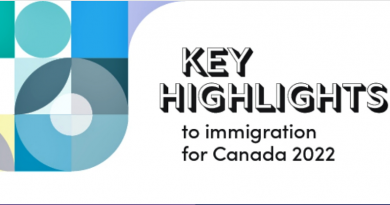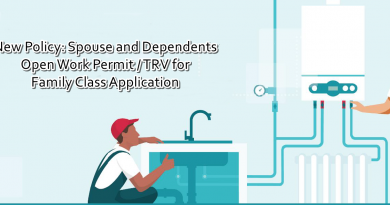Temporary Public Policy Regarding Excessive Demand on Health and Social Services
Background
- The Department recently conducted a fundamental review of the policy on excessive demand on health and social services, as specified in sections 38(1)(c) and 38(2) of the Immigration and Refugee Protection Act (Act) and as defined at section 1 of the Immigration and Refugee Protection Regulations (Regulations) (see Annex A). This resulted in a decision to change the policy.
- Canada’s health admissibility provisions for immigration applicants are designed, in part, to reduce impacts on Canada’s publicly funded health and social services systems. Under the current policy, a foreign national is inadmissible if they have a health condition that might reasonably be expected to cause an excessive demand on health or social services.
- The current medical assessment of applicants includes an assessment of the costs for services that many see as critical for promoting inclusion. Most notably, this includes special education, social and vocational rehabilitation services, and personal support services. Instead of treating these as costs that must be borne by society, these services should instead be seen as investments that enable participation and inclusion. Additionally, the current policy prevents the arrival of immigrants with health conditions that require health and social services that cost only a small amount more than the average Canadian per capita cost of health and social services. These potential immigrants should instead be facilitated to make economic and social contributions to Canada. As a result, the following changes are being proposed:
- A revision of the definition of “social services” in the Regulations is planned to focus the immigration medical assessment on those publicly-funded social services that are closely related to health services and related to the provision of constant supervision and care for those who are not able to integrate into society. Changing the definition will bring the policy in line with Canadian values on supporting the participation of persons with disabilities in society. At the same time, it will continue to protect health and social services for Canadians.
- A revision of the definition of “excessive demand” in the Regulations is also planned to increase the existing cost threshold to three times the average Canadian per capita cost of health and social services. Changing the definition will facilitate immigration for applicants with health conditions that typically require health and social services that cost only a small amount more than the Canadian average per capita cost of health and social services (i.e., exceeding the current cost threshold but less than three times the average Canadian per capita costs), while continuing to protect health and social services for Canadians.
- Implementation of a public policy that is aligned with the above changes will allow the Department to take immediate steps to promote the inclusion of persons with disabilities in Canadian society and to remove a barrier for persons who require health and social services that cost only a small amount more than the average Canadian per capita cost of health and social services, but who could otherwise contribute to Canada. At the same time, it will continue to protect health and social services for Canadians.
Public Policy Considerations
- As such, I hereby establish that there are sufficient public policy considerations, in accordance with section 25.2 of the Act, that justify the granting of exemptions from the requirements in the Act listed below to foreign nationals who meet the conditions (eligibility requirements) set out below.
- This temporary public policy will apply to applications for visas or other required documents, for permanent or temporary residence.
Eligibility Criteria and Conditions
Once an immigration medical exam is completed, based on the public policy considerations, delegated officers may grant an exemption from paragraph 38(1)(c) of the Act (medical inadmissibility due to excessive demand on health or social services) to foreign nationals (principal applicant or their dependent family members) who would otherwise have been found inadmissible under paragraph 38(1)c and who meet the following criteria and conditions:
- The foreign national (principal applicant or their dependent family member) must have a temporary or permanent resident application that was received on or after April 16, 2018 or was pending as of that date, was sent back by the Court for redetermination on or after April 16, 2018, or was sent back by the Immigration Appeal Division for reconsideration on or after April 16, 2018; and
- The costs of the health and social services (listed in Section 1, Annex B) that would be required to treat the foreign national’s health condition are less than three times the average Canadian per capita health and social services costs over a period of five consecutive years immediately following the most recent medical examination required under paragraph 16(2)(b) of the Immigration and Refugee Protection Act, unless there is evidence that significant costs are likely to be incurred beyond that period, in which case the period is no more than 10 consecutive years.
Applicants who are required to undergo an immigration medical examination (IME) pursuant to subsection 16(2)(b) of the Immigration and Refugee Protection Act and who are not exempt under subsection 30(1) of the Regulations will continue to be so required.
Pages: 1 2





